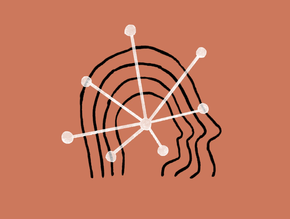Microsoft to Offer AI Support to Europe Amid Economic Slump

Europe is facing its worst economic decline in 20 years, with businesses looking for alternative solutions to boost their digital transformations.
With this in mind, Microsoft has announced an AI commitment towards Germany by investing 3.2 billion euros (US$3.44bn) into the country over the next two years.
According to Reuters, this is the tech giant’s largest investment in Germany in 40 years. As a result, Microsoft is aiming to double the country’s capacity of its AI and data centre infrastructure, which includes the expansion of digital training programmes.
This news comes in the wake of the organisation pledging to invest £2.5 billion (US$3.16bn) to build AI infrastructure in the UK.
Growing the digital economy
There is still a worldwide debate over if AI can be a solution for economic hardship, or a catalyst. In the business world, however, organisations are already starting to reap the benefits of AI systems simultaneously lowering their costs and boosting workplace productivity.
Germany has recently sought to move forward with its responsible technology initiatives, having joined an AI regulatory agreement to bring about more responsible development.
Microsoft seeks to strengthen Germany’s business appeal, according to Reuters, acknowledging that the country is feeling the effects of slower economic growth globally. The company also wants to boost cloud computing applications in the region.
Vice Chair and President Brad Smith at Microsoft says that, whilst Germany is “constantly at the forefront” of technological progress, it is currently suffering from a lack of AI skills. He states that the investment from Microsoft will help build out digital infrastructure to help the German economy continue utilising AI and build out its skills base.
Part of the investment will include a programme to train and upskill roughly 1.2 million people in new AI capabilities. This is very similar to what the company is currently doing in India, by teaching two million Indians about AI by 2025, including 75,000 women to advance women in technology.
As a result of the global skills gap, mostly within the AI sector, businesses across Europe are seeking new ways to boost the skills of their workforce. Ahead of the EU AI Act legislation vote in April 2024, nations around the world are looking to collaborate with technology companies to ensure growth, in addition to better safety.
Developing safe AI
In addition to facilitating economic growth, Microsoft’s strategy is also to ensure that AI is developed and deployed in a responsible and ethical way. With the company predicting that the world’s economy will inflate to US$16tn by 2030 on account of AI, it is committed to make AI more accessible worldwide so that it can better protect vital infrastructure.
The company is working with OpenAI to study the cyber threat landscape in line with generative AI (Gen AI), focusing on emerging threats and the attempted misuse of large language models (LLMs) and fraud.
It states in its report that the power of AI to boost cybersecurity is only now starting to be recognised on a wider scale. As a result, Microsoft is keen to help others understand that AI can be potentially misused by threat actors to extort businesses and essential services.
Microsoft will also work to improve the protection of OpenAI LLM technology and users from attack and shape guardrails and safety mechanisms around its models. The goal is to share intelligence, improve protections for customers and aid the broader security community in harnessing AI safely.
******
Make sure you check out the latest edition of AI Magazine and also sign up to our global conference series - Tech & AI LIVE 2024
******
AI Magazine is a BizClik brand






